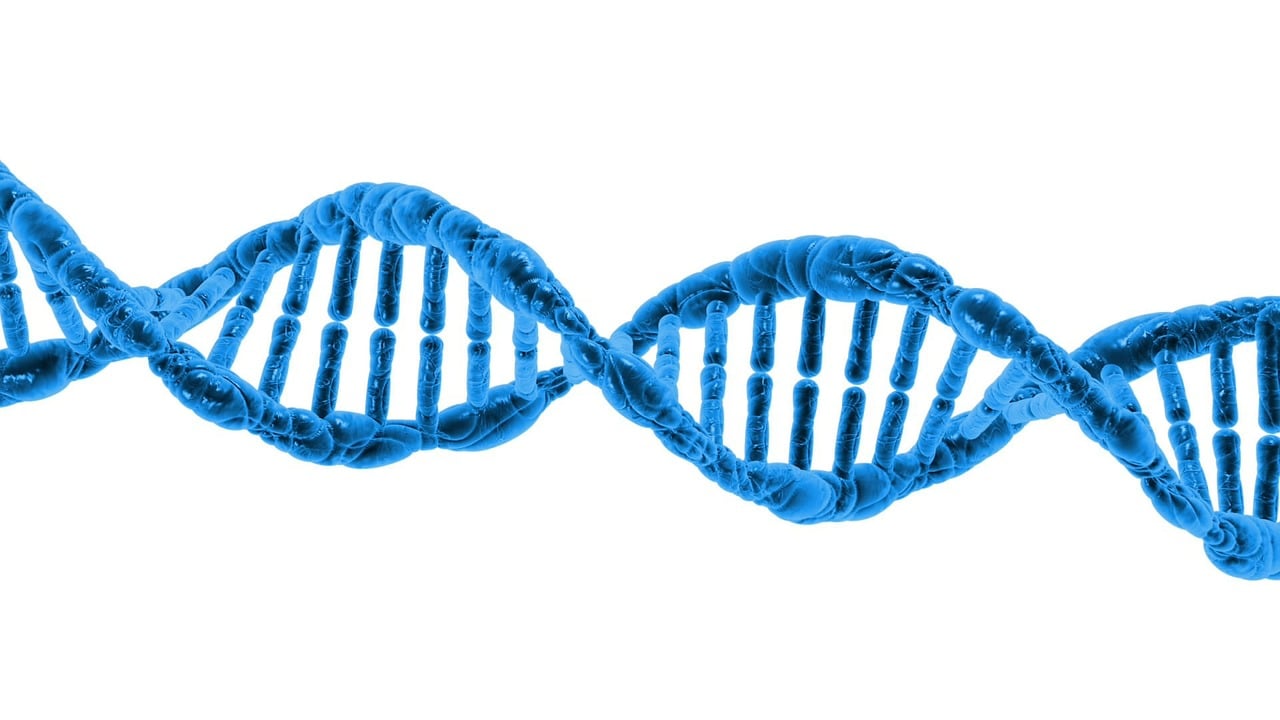Evolutionary Thought and Philosophy - An Analysis
The relationship between evolutionary thought and philosophy is a fascinating one, intertwining the realms of science and human understanding. At its core, this intersection prompts us to question not just the origins of life but also the very nature of existence itself. As we delve into this analysis, we will uncover how evolutionary theories have not only reshaped our scientific perspectives but have also profoundly influenced our philosophical inquiries, ethics, and understanding of what it means to be human.
From the moment Charles Darwin introduced the revolutionary concept of natural selection, the philosophical landscape began to shift dramatically. The implications of evolution extend far beyond biology; they challenge our preconceived notions of purpose, morality, and even our place in the universe. This exploration is not merely academic; it resonates deeply with our daily lives, affecting how we perceive ourselves and our relationships with others and the world around us.
As we navigate through this complex web of ideas, we will highlight key milestones in the history of evolutionary thought, discuss the philosophical implications that arise from these theories, and examine how philosophy itself has influenced evolutionary thinking. In doing so, we aim to paint a comprehensive picture of how these two fields, while distinct, are inextricably linked in their quest for understanding.
In the following sections, we will tackle questions such as: How does the principle of natural selection impact our views on human purpose? What role does chance play in the evolutionary process? And how do modern ethical theories draw from evolutionary insights? By addressing these questions, we hope to engage readers in a dialogue that is as enlightening as it is thought-provoking.
The journey of evolutionary thought is rich with significant figures and pivotal moments that have shaped our understanding of life. From the early observations of naturalists to the groundbreaking work of Darwin, each contribution has added layers of complexity to the philosophical discourse surrounding evolution. In this section, we will explore key milestones in this journey, including:
- The publication of Darwin's "On the Origin of Species" in 1859, which introduced the world to the concept of natural selection.
- The synthesis of Mendelian genetics with Darwinian evolution in the early 20th century, leading to the modern synthesis of evolutionary biology.
- The emergence of evolutionary psychology as a field that seeks to understand the human mind through the lens of evolution.
Each of these milestones not only advanced scientific knowledge but also raised profound philosophical questions about existence, morality, and the nature of progress. As we continue our exploration, we will delve deeper into the philosophical implications of these evolutionary theories.
Evolutionary theory poses significant philosophical questions that challenge traditional views. One of the most pressing issues is the nature of existence itself. If we are products of evolution, what does that say about our purpose? Are we merely the result of random mutations and natural selection, or is there a deeper meaning to our existence? These questions lead us to re-evaluate our understanding of morality and ethics in a world shaped by evolutionary processes.
The principle of natural selection fundamentally challenges the idea of an inherent purpose in nature. Traditionally, many cultures and religions have posited that life has a predetermined design. However, the insights gained from evolutionary biology suggest that life is shaped by chance and environmental pressures. This realization can be unsettling, prompting us to reconsider our significance in the grand scheme of the universe.
In the debate between reductionism and holism, we find contrasting approaches to understanding evolutionary processes. Reductionism seeks to explain complex phenomena by breaking them down into their simplest components, while holism emphasizes the importance of viewing systems as a whole. This discussion is crucial for interpreting life and consciousness, as it affects how we perceive the interconnectedness of all living beings.
Another fascinating aspect of evolutionary theory is the role of chance. The randomness inherent in genetic mutations raises questions about determinism and free will. If our traits and behaviors are influenced by chance events, what does that mean for our moral responsibility? This inquiry challenges us to rethink our ethical frameworks and how we understand human agency.
As we examine the evolution of ethical theories, we see how evolutionary insights have informed contemporary moral philosophy. The principles of utilitarianism, virtue ethics, and social contract theories have all been shaped by our understanding of human nature and the evolutionary forces at play. These theories provide valuable frameworks for addressing modern moral dilemmas, urging us to consider the implications of our actions on both individuals and society as a whole.
Philosophy has not only been shaped by evolutionary thought but has also played a pivotal role in shaping scientific inquiry in evolution. Philosophical frameworks guide research methodologies and influence interpretations of evolutionary data. Understanding the philosophical underpinnings of evolutionary theory can enhance our comprehension of the scientific processes involved.
The concept of teleology—the idea that processes have a purpose or goal—raises intriguing questions in evolutionary thought. Can evolution be viewed as goal-directed, or is it purely a product of chance and necessity? This debate has significant implications for our understanding of purpose in biological systems and challenges us to reconcile scientific findings with philosophical perspectives.
Finally, we must address the philosophical stance of naturalism, which posits that everything arises from natural properties and causes. While this view aligns closely with evolutionary theory, it faces challenges from alternative perspectives that incorporate metaphysical considerations. The ongoing dialogue between naturalism and other philosophical viewpoints enriches our understanding of both evolution and existence.
Q: How does evolutionary theory challenge traditional views of morality?
A: Evolutionary theory suggests that our moral instincts may have developed through natural selection, prompting us to reconsider the foundations of our ethical beliefs.
Q: What is the significance of chance in evolution?
A: Chance plays a crucial role in genetic mutations, leading to diversity in species. This randomness raises questions about determinism and free will in human behavior.
Q: Can evolution have a purpose?
A: The debate between teleological and non-teleological views in evolution remains ongoing. While some argue that evolution is purely a product of chance, others see potential goal-directed processes at play.

The Historical Context of Evolutionary Thought
The journey of evolutionary thought is a fascinating tapestry woven from the threads of science, philosophy, and cultural shifts. It all began in the early 19th century when the seeds of evolution were planted by thinkers who dared to challenge the prevailing doctrines of their time. Charles Darwin, often hailed as the father of modern evolutionary theory, published his groundbreaking work, On the Origin of Species, in 1859. This monumental text not only introduced the concept of natural selection but also ignited a philosophical revolution that would resonate through the ages.
Before Darwin, many scientists and philosophers, such as Jean-Baptiste Lamarck, were already pondering the mechanisms of change in organisms. Lamarck proposed that species evolve through the inheritance of acquired characteristics, a notion that would later be overshadowed by Darwin's evidence-based approach. The shift from a static view of life to a dynamic one was not merely scientific; it was philosophical, challenging humanity's place in the natural order.
Throughout the late 19th and early 20th centuries, the acceptance of evolutionary theory fostered a rich dialogue among philosophers. Thinkers like Herbert Spencer attempted to apply evolutionary principles to societal progress, coining the phrase "survival of the fittest." This idea, however, was not without controversy, as it raised ethical questions about social Darwinism and the implications of applying biological concepts to human society.
As the 20th century unfolded, the integration of genetics into evolutionary theory, thanks to the work of scientists like Gregor Mendel, led to the development of the Modern Synthesis. This synthesis combined Darwin's natural selection with Mendelian genetics, providing a more comprehensive understanding of evolution. Philosophers began to grapple with the implications of this new understanding, questioning the nature of existence and the essence of humanity in a world governed by chance and change.
In contemporary times, the discourse surrounding evolutionary thought continues to evolve. Philosophers such as Daniel Dennett and Richard Dawkins have contributed to the conversation, exploring the implications of evolutionary theory on consciousness, ethics, and the very fabric of reality. The historical context of evolutionary thought is not just a timeline of scientific discovery; it's a reflection of humanity's ongoing quest to understand itself and its place in the universe. As we stand on the shoulders of giants, we must ask ourselves: what does it mean to be human in an ever-evolving world?
In summary, the historical context of evolutionary thought is a rich narrative that encompasses the contributions of various thinkers and the cultural shifts that have shaped our understanding of life. From Darwin's revolutionary ideas to the ongoing philosophical debates of today, the interplay between science and philosophy continues to inspire inquiry and reflection.

Key Philosophical Implications of Evolution
When we dive into the world of evolutionary thought, we uncover a treasure trove of philosophical implications that challenge our most fundamental beliefs. This isn’t just about how species change over time; it’s about questioning the very fabric of our existence. Have you ever pondered why we are here or what it means to be "human"? Evolutionary theory pushes us to explore these profound questions.
One of the biggest philosophical conundrums that arise from evolution is the nature of existence itself. Are we merely the product of random mutations and natural selection, or is there a deeper purpose behind our existence? This leads us to consider the concept of morality. If our behaviors and ethical frameworks have evolved, can we trust them? Are our moral instincts simply survival mechanisms, or do they reflect something more significant? The implications are vast and complex.
Moreover, the idea of progress in human development is another critical area where evolution intersects with philosophy. Traditionally, many cultures have viewed human history as a linear progression towards greater complexity and enlightenment. However, evolutionary theory introduces a more nuanced view. Evolution doesn’t guarantee progress; it merely describes change. This challenges the notion that humanity is on a destined path towards improvement, forcing us to reconsider our place in the grand tapestry of life.
Natural selection, a cornerstone of evolutionary theory, has profound implications for how we view purpose and design in nature. For centuries, many believed that nature was crafted with intention, much like an artist creating a masterpiece. However, natural selection paints a different picture: one where life is shaped by random variations and environmental pressures. This realization can be unsettling. If we are not the result of a grand design, what does that mean for our significance in the universe? Are we just another species, a mere blip in the vast expanse of time?
This philosophical shift can be likened to stepping back from a painting to see the entire canvas, rather than focusing solely on individual brushstrokes. It forces us to confront the uncomfortable truth that humans may not occupy a special place in the cosmos. Instead, we are part of a larger, intricate web of life that is constantly evolving.
The debate between reductionism and holism offers another fascinating lens through which to examine evolutionary thought. Reductionism seeks to understand complex phenomena by breaking them down into their simplest components. This approach has its merits, especially in scientific inquiry, but it can overlook the richness of the whole. In contrast, holism emphasizes the importance of understanding systems as a complete entity, where the interactions between parts can lead to emergent properties that are not evident when examining components in isolation.
This philosophical tension raises questions about how we interpret life and consciousness. Are we merely a collection of biological processes, or is there something more profound at play? This debate is crucial, as it shapes our understanding of everything from scientific research to ethical considerations.
Another striking implication of evolutionary theory is the role of chance in shaping life. The randomness inherent in evolutionary processes challenges deterministic views that suggest everything is preordained. If chance plays a significant role in evolution, what does that mean for our understanding of free will? Are our choices truly ours, or are they influenced by a series of random events that led us to this moment?
This philosophical inquiry extends to ethics as well. If we accept that chance is a driving force in evolution, it prompts us to reconsider how we judge actions and decisions. Are we accountable for our choices if they are shaped by factors beyond our control? These questions invite a deeper examination of moral responsibility and the nature of human agency.
In summary, the key philosophical implications of evolution are profound and far-reaching. They challenge us to rethink our existence, morality, and the very essence of progress. As we navigate these complex questions, we open ourselves to a richer understanding of life and our place within it.
- What is the significance of evolutionary theory in philosophy?
Evolutionary theory prompts us to question our understanding of existence, morality, and progress, leading to deeper philosophical inquiries. - How does natural selection impact our view of purpose in life?
Natural selection challenges traditional views of a purposeful design in nature, suggesting that life is shaped by random variations rather than intention. - What is the debate between reductionism and holism in evolutionary thought?
Reductionism focuses on understanding complex phenomena by breaking them down, while holism emphasizes the importance of viewing systems as a whole. - How does chance influence our understanding of free will?
The role of chance in evolution raises questions about whether our choices are genuinely ours or influenced by random events.

Natural Selection and Its Philosophical Impact
Natural selection, a concept famously articulated by Charles Darwin, has not only revolutionized our understanding of biology but has also significantly influenced philosophical thought. At its core, natural selection proposes that organisms better adapted to their environment tend to survive and produce more offspring. This simple yet profound idea has sparked a myriad of philosophical discussions regarding the nature of existence and our place within the universe. Have you ever wondered what it means to be "fit" in the grand scheme of life? The implications of this principle challenge traditional views of purpose and design in nature.
One of the most compelling philosophical questions arising from natural selection is the idea of purpose. For centuries, many believed that life was designed with specific goals in mind, often attributing this design to a higher power. However, natural selection introduces a more chaotic and less purposeful view of existence. It suggests that life is not a product of intentional design but rather a result of random mutations and environmental pressures. This leads us to ponder: if nature is indifferent, what does that say about our own significance? Are we merely products of chance, or do we have the capacity to create our own meaning?
Furthermore, the principle of natural selection invites us to reevaluate our understanding of human significance. In a universe governed by survival of the fittest, humans, like all other species, are subject to the same laws of nature. This realization can be both humbling and liberating. It challenges the anthropocentric worldview that places humans at the center of existence, encouraging a more egalitarian perspective that recognizes the interconnectedness of all life forms. We are not merely rulers of the Earth but participants in a vast web of life, each playing a role in the ongoing evolutionary saga.
Moreover, natural selection raises intriguing questions about ethics and morality. If our behaviors and moral frameworks are shaped by evolutionary pressures, can we hold individuals accountable for their actions in the same way we traditionally have? This perspective can lead to a more compassionate understanding of human behavior, recognizing that many actions are influenced by biological imperatives rather than conscious choices. As we delve deeper into the implications of natural selection, the lines between determinism and free will blur, prompting us to ask whether we are truly in control of our destinies or merely following the paths laid out by our ancestors.
To further illustrate the philosophical impact of natural selection, consider the following table that outlines key philosophical questions and their connections to natural selection:
| Philosophical Question | Connection to Natural Selection |
|---|---|
| What is the purpose of life? | Challenges traditional views of design; suggests life lacks inherent purpose. |
| What is human significance? | Promotes a view of humans as part of a larger evolutionary process. |
| Are we morally accountable? | Questions the basis of morality; suggests behaviors may be influenced by evolutionary factors. |
In conclusion, the philosophical impact of natural selection is profound and far-reaching. It compels us to question our assumptions about life, purpose, and morality. As we navigate through these complex ideas, we must embrace the uncertainty and chaos inherent in the natural world. Perhaps, in doing so, we can find a deeper understanding of not only our place in the universe but also the very essence of what it means to be alive.
- What is natural selection?
Natural selection is a process where organisms better adapted to their environment tend to survive and reproduce, leading to evolutionary changes over time. - How does natural selection affect our understanding of purpose?
It challenges the idea that life has an inherent purpose, suggesting instead that life evolves through random mutations and environmental pressures. - Can natural selection explain human behavior?
Yes, it implies that many aspects of human behavior may be influenced by evolutionary pressures, complicating traditional views of morality and accountability.

Reductionism vs. Holism
When delving into the fascinating world of evolutionary thought, one cannot ignore the vibrant debate between reductionism and holism. These two philosophical approaches offer contrasting lenses through which we can interpret the complexities of life and consciousness. Reductionism, often likened to a microscope that zooms in on the minute details, seeks to understand complex phenomena by breaking them down into their simplest parts. Think of it as dissecting a car to understand how it functions; by examining each component, one can gain insights into the whole. In biological terms, reductionists might focus on genes, cells, and biochemical processes, believing that understanding these elements will ultimately explain the entirety of life itself.
On the flip side, we have holism, which advocates for a more comprehensive view. Holists argue that the whole is greater than the sum of its parts. Imagine trying to understand a symphony by only listening to one instrument; you lose the essence of the music. This perspective emphasizes the interconnectedness of systems and the idea that context and relationships play crucial roles in understanding life. In evolutionary biology, this could mean looking at ecosystems, species interactions, and evolutionary dynamics as a whole rather than isolating individual components. The holistic approach invites us to consider questions like: How do organisms interact with their environment? What roles do social structures play in evolution?
Both perspectives have their merits and limitations. Reductionism can lead to significant breakthroughs, such as understanding genetic mutations and their impacts on evolution. However, it can also fall short by neglecting the broader ecological and social contexts that shape evolutionary outcomes. Holism, while providing a richer tapestry of understanding, can sometimes lead to vague conclusions that lack the precision offered by reductionist methods. The real challenge lies in finding a balance between these two approaches, creating a dialogue that respects the complexity of life while also appreciating the intricate details.
To illustrate the differences between reductionism and holism, consider the following table:
| Aspect | Reductionism | Holism |
|---|---|---|
| Focus | Individual components | Whole systems |
| Methodology | Analysis and dissection | Synthesis and integration |
| Example in Biology | Studying DNA sequences | Examining ecosystem dynamics |
| Strengths | Precision and clarity | Contextual understanding |
| Weaknesses | Oversimplification | Potential vagueness |
In conclusion, the debate between reductionism and holism in evolutionary thought invites us to rethink how we approach complex questions about life, existence, and consciousness. By appreciating both perspectives, we can foster a more nuanced understanding of evolution that respects the intricate dance between the details and the bigger picture.
- What is reductionism? Reductionism is a philosophical approach that seeks to understand complex phenomena by breaking them down into their simplest parts.
- What is holism? Holism is the perspective that the whole is greater than the sum of its parts, emphasizing the interconnectedness of systems.
- How do reductionism and holism apply to evolutionary biology? Reductionism focuses on individual components like genes, while holism considers broader ecological and social contexts in understanding evolution.
- Can reductionism and holism coexist? Yes, finding a balance between the two can lead to a richer understanding of complex systems.

The Role of Chance in Evolution
The concept of chance in evolution is both fascinating and perplexing. It raises questions that challenge our understanding of life itself. Imagine evolution as a massive game of dice, where every roll can lead to a different outcome. This randomness has profound implications for how we perceive the development of species, including our own. The idea that chance plays a significant role in evolutionary processes suggests that not all traits and adaptations are the result of a grand design or purpose. Instead, they may arise from a series of fortunate—or unfortunate—events that shape the trajectory of life on Earth.
One of the most significant aspects of chance in evolution is its impact on genetic variation. Mutations, which are often random, can lead to new traits that may or may not provide a survival advantage. This unpredictability is what makes the evolutionary process so dynamic and complex. For instance, consider the peppered moth, which evolved darker coloration during the Industrial Revolution due to pollution. This change was not a predetermined outcome but rather a response to environmental changes that happened to favor certain genetic variations. Without these random mutations, the species might not have survived in such a dramatically altered environment.
Furthermore, the role of chance extends beyond genetics. Environmental factors, such as natural disasters or climate shifts, can drastically alter ecosystems. These events can wipe out entire populations, leaving only those that happen to possess traits suited for survival in the new conditions. This idea leads us to ponder: if evolution is significantly influenced by chance, what does that mean for our understanding of free will and choice in human behavior? Are we merely products of our circumstances, shaped by random events, or do we possess agency in our development?
To illustrate this interplay between chance and evolution, let's look at a simplified model of evolutionary outcomes:
| Factor | Impact on Evolution |
|---|---|
| Genetic Mutations | Random changes can lead to new traits, some advantageous, some not. |
| Environmental Changes | Natural disasters or climate shifts can favor certain traits over others. |
| Random Mating | Mating patterns can introduce randomness in gene combinations. |
This table highlights how various factors contribute to the randomness inherent in evolutionary processes. Each factor plays a crucial role in determining which traits are passed down through generations, ultimately influencing the trajectory of life on our planet.
In conclusion, the role of chance in evolution cannot be overstated. It not only challenges deterministic views of life but also invites us to reconsider our place in the natural world. As we delve deeper into the complexities of evolution, we find that embracing the randomness of existence can lead to a richer understanding of both our biological heritage and the ethical implications of our actions. After all, if we are shaped by chance, how does that inform our responsibility towards the environment and each other?
- What is the role of chance in evolution? Chance plays a significant role in evolution through random mutations and environmental changes that can favor certain traits over others.
- How do mutations contribute to evolution? Mutations introduce genetic variations, some of which may provide survival advantages in changing environments.
- Does chance undermine the idea of purpose in evolution? Yes, the randomness involved in evolutionary processes challenges traditional views of purpose and design in nature.
- What are the implications of chance on free will? The influence of chance raises questions about human agency and whether our choices are significantly shaped by random events.

The Evolution of Ethical Theories
The evolution of ethical theories is a fascinating journey that intertwines with the development of evolutionary thought itself. As we delve into this subject, we find that the principles of evolution have not only influenced our understanding of biology but have also reshaped our moral frameworks. Imagine ethics as a living organism, constantly adapting and evolving in response to the changing environment of human experience and understanding. This adaptability is crucial in addressing the complexities of modern moral dilemmas.
To begin with, one of the most significant contributions of evolutionary theory to ethics is the emergence of utilitarianism. This ethical framework, championed by philosophers like Jeremy Bentham and John Stuart Mill, posits that the best action is the one that maximizes overall happiness or utility. The connection to evolution is evident here; just as species adapt to enhance their survival and reproduction, ethical theories evolve to promote the greatest good for the greatest number. In this context, utilitarianism can be seen as a reflection of our biological imperatives to seek pleasure and avoid pain.
Another vital aspect of this evolution is the development of virtue ethics, which emphasizes the importance of character and moral virtues in ethical decision-making. Rooted in the works of Aristotle, this perspective shifts the focus from the consequences of actions to the moral character of the individual. In light of evolutionary theory, one might argue that virtues such as empathy and cooperation have developed as social adaptations, enhancing group survival. Thus, virtue ethics not only reflects our biological heritage but also serves as a guide for personal development and ethical behavior in a complex world.
Moreover, the social contract theory, articulated by thinkers like Thomas Hobbes, John Locke, and Jean-Jacques Rousseau, offers another lens through which to view the evolution of ethical thought. This theory suggests that moral and political obligations arise from an implicit agreement among individuals to form societies. The evolution of this concept parallels the emergence of human societies themselves, as early humans transitioned from isolated groups to more complex social structures. In this sense, ethical theories can be seen as evolving alongside human social evolution, adapting to the needs and challenges of increasingly interconnected communities.
As we explore these ethical frameworks, it's essential to acknowledge the ongoing debates and tensions within them. For instance, while utilitarianism focuses on outcomes, critics argue that it can lead to morally questionable decisions if the ends justify the means. Similarly, virtue ethics may struggle with the variability of virtues across cultures, raising questions about universal moral standards. These discussions illustrate the dynamic nature of ethical theories—much like species in nature, they adapt, compete, and sometimes even go extinct in the face of new challenges.
In conclusion, the evolution of ethical theories is a testament to the interplay between our biological heritage and our moral reasoning. As we continue to grapple with ethical dilemmas in an ever-changing world, understanding the roots and evolution of these theories can provide valuable insights. Just as evolution drives the diversity of life, it also shapes the diversity of thought in our moral landscape. As we look to the future, the challenge remains: how can we cultivate ethical theories that not only reflect our evolutionary past but also guide us toward a more just and compassionate society?
- How has evolutionary theory influenced modern ethics?
Evolutionary theory has provided insights into human behavior, suggesting that certain moral instincts may be rooted in our biological past, thereby shaping ethical frameworks like utilitarianism and virtue ethics. - What is the main premise of utilitarianism?
Utilitarianism posits that the best action is the one that maximizes overall happiness or utility, reflecting an evolutionary drive to promote well-being within social groups. - How does virtue ethics differ from other ethical theories?
Virtue ethics emphasizes the importance of moral character and virtues rather than solely focusing on the consequences of actions, suggesting that our ethical behavior is influenced by our inherent traits. - What role does social contract theory play in ethics?
Social contract theory posits that moral obligations arise from an agreement among individuals to form societies, highlighting the evolution of ethical thought alongside human social development.

Philosophy's Influence on Evolutionary Thinking
The relationship between philosophy and evolutionary thinking is a fascinating interplay that has evolved over centuries. Philosophical inquiries have not only shaped our understanding of evolution but have also influenced the methodologies and interpretations within the scientific community. To put it simply, philosophy acts as a lens through which we view the complexities of evolutionary processes, guiding scientists in formulating hypotheses and understanding the implications of their findings.
One of the most significant ways philosophy impacts evolutionary thinking is through the formulation of epistemological questions. These questions address the nature and scope of knowledge, prompting scientists to consider what constitutes valid evidence in evolutionary studies. For instance, when examining the fossil record, philosophers encourage scientists to think critically about the assumptions underlying their interpretations. Are they objectively assessing the data, or are they influenced by prevailing philosophical doctrines? This kind of scrutiny is essential because it leads to a more robust understanding of evolutionary history.
Moreover, philosophical frameworks often provide a backdrop against which scientific theories are developed. Take, for example, the concept of naturalism. Philosophical naturalism posits that everything arises from natural properties and causes, and supernatural explanations are excluded. This perspective has profoundly influenced evolutionary biology, leading researchers to focus on natural mechanisms such as mutation, genetic drift, and natural selection as the primary drivers of evolution. By grounding evolutionary theory in naturalistic philosophy, scientists can explore the intricacies of life without invoking metaphysical explanations, which can often lead to ambiguity.
Additionally, the philosophical debate surrounding teleology—the study of purpose or design in natural phenomena—has significant implications for evolutionary thought. Traditional views often posited that evolution was a goal-directed process, where organisms evolved towards greater complexity or 'perfection.' However, modern evolutionary biology, influenced by philosophical inquiry, tends to reject this notion. Instead, it emphasizes that evolution is not a linear journey towards an end goal but rather a complex web of adaptations shaped by environmental pressures and random events. This shift in understanding has profound consequences for how we perceive the purpose of life and our place in the universe.
Furthermore, the interaction between philosophy and science is not a one-way street. Just as philosophy influences evolutionary thinking, scientific discoveries often challenge and refine philosophical ideas. For instance, the emergence of evolutionary psychology has raised several ethical questions about human behavior. Are our actions dictated by our evolutionary past, or do we possess free will? This inquiry not only affects scientific research but also has broader implications for ethics and morality in society. As we grapple with these questions, we find ourselves at the crossroads of philosophy and science, where each discipline informs and enriches the other.
In conclusion, the influence of philosophy on evolutionary thinking is profound and multifaceted. It shapes our understanding of knowledge, guides scientific inquiry, and challenges our perceptions of purpose and morality. As we continue to explore the depths of evolutionary theory, the philosophical questions that arise will undoubtedly remain central to our quest for understanding the complexities of life.
- How does philosophy affect scientific research in evolution?
Philosophy provides frameworks and questions that guide scientists in their inquiry, ensuring that they critically assess their assumptions and methodologies. - What is the role of naturalism in evolutionary thought?
Naturalism encourages a focus on natural causes and mechanisms in evolution, steering away from supernatural explanations. - Can evolution be considered goal-directed?
Modern evolutionary biology generally rejects the idea of evolution as a linear, goal-directed process, viewing it instead as a complex interplay of adaptations.

Teleology in Evolutionary Thought
When we dive into the concept of teleology within the realm of evolutionary thought, we're wading into some pretty deep philosophical waters. At its core, teleology refers to the idea that there is a purpose or design behind natural phenomena. This perspective raises intriguing questions: Can we truly say that evolution has a direction or an end goal? Or is it merely a series of random events that happen to lead to the complex life forms we see today?
Historically, teleological explanations were prevalent in the natural sciences, where many believed that organisms existed for a specific purpose. However, with the advent of Darwinian evolution and the principle of natural selection, this view began to shift dramatically. Darwin's theory posited that traits evolve not because they serve a predetermined purpose, but because they confer a survival advantage in a given environment. This notion challenges the traditional teleological view and suggests that life is more about adaptation than purpose.
One of the most compelling aspects of this debate is how it influences our understanding of purpose in biological systems. For instance, consider the intricate design of the human eye. Is it a product of intelligent design, or is it simply a result of countless evolutionary adaptations? Some argue that the eye’s complexity indicates a purposeful design, while others contend that it is a remarkable example of how evolutionary processes can yield sophisticated structures without any overarching intention.
To illustrate the contrast between teleological and non-teleological perspectives, we can look at the following table:
| Aspect | Teleological View | Non-Teleological View |
|---|---|---|
| Purpose | Everything has a specific purpose. | Purpose is an illusion; traits evolve based on survival needs. |
| Design | Life is designed with intention. | Life is shaped by random mutations and natural selection. |
| Human Significance | Humans occupy a special place in the universe. | Humans are one of many species, shaped by the same processes. |
As we ponder these questions, we can't help but reflect on the implications of adopting a teleological perspective. If we accept that evolution has a direction, we might be tempted to view humanity as the pinnacle of evolution. This can lead to a sense of superiority over other species and even justify certain ethical stances. On the flip side, rejecting teleology can foster a humbler view of our place in the natural world, reminding us that we are merely products of a long evolutionary process, subject to the same forces as any other organism.
Furthermore, the debate over teleology in evolutionary thought extends into the realms of ethics and morality. If we believe that life has a purpose, it might shape our ethical frameworks and influence how we interact with the world around us. For instance, a teleological view might lead to a more conservation-oriented approach, as we seek to preserve the 'design' of nature. Conversely, a non-teleological stance may lead to a more pragmatic approach, focusing on the immediate benefits of our actions rather than an overarching purpose.
Ultimately, the question of teleology in evolution is not just an academic exercise; it has profound implications for how we understand our existence and our responsibilities as stewards of the planet. As we continue to explore the intricate dance between evolution and philosophy, we must remain open to the myriad interpretations that shape our understanding of life and its purpose.
- What is teleology? Teleology is the philosophical study of purpose or design in natural phenomena.
- Does evolution have a purpose? The scientific consensus is that evolution is a process driven by natural selection and randomness, not by a predetermined purpose.
- How does teleology impact ethics? Beliefs about purpose can influence ethical frameworks, affecting how we view our responsibilities towards other species and the environment.

Philosophical Naturalism and Its Challenges
Philosophical naturalism is a perspective that posits that everything arises from natural properties and causes, and supernatural or spiritual explanations are excluded or discounted. This viewpoint has gained substantial traction, particularly in the context of evolutionary theory, where it aligns closely with the empirical methods of science. But what does this mean for our understanding of reality? And more importantly, what challenges does it face in a world that often clings to metaphysical and supernatural beliefs?
At its core, philosophical naturalism suggests that the universe is a self-contained, closed system that operates according to natural laws. This standpoint has led to significant advancements in various fields, including biology, psychology, and sociology. By relying on observable phenomena and empirical evidence, naturalism encourages a scientific approach to understanding life, existence, and even morality. However, this strict adherence to natural causes raises several philosophical questions that challenge its validity.
One major challenge to philosophical naturalism is the issue of consciousness. How can subjective experiences, thoughts, and emotions—elements that seem to transcend mere physical processes—be explained solely through naturalistic terms? This conundrum often leads to debates about the nature of the mind and its relationship to the body, stirring up discussions about dualism versus physicalism. For instance, if our thoughts are merely the byproducts of brain activity, what does that say about free will and moral responsibility? Are we just biochemical machines, or is there something more?
Moreover, the concept of chance plays a crucial role in evolutionary theory, which can be at odds with a strictly naturalistic framework. Consider the randomness of genetic mutations that drive evolution; this unpredictability introduces an element of uncertainty that challenges deterministic views. If chance is a significant factor in our development, then how do we reconcile this with the idea of a universe governed by natural laws? This brings us to the philosophical implications of randomness and its potential to disrupt our understanding of causality and purpose.
Another challenge arises from the intersection of naturalism with ethical theories. Many ethical frameworks, such as utilitarianism or virtue ethics, often rely on concepts that may not easily fit within a naturalistic worldview. For instance, can we derive moral values and duties from a purely naturalistic perspective? Some argue that without a transcendent source of morality, ethical principles become subjective and culturally relative, leading to a form of moral nihilism. This raises the question: can a naturalistic understanding of the world provide a solid foundation for ethics, or does it inevitably lead us to moral ambiguity?
Philosophical naturalism also faces opposition from various metaphysical viewpoints that argue for the existence of non-empirical realities. These perspectives often include spiritual or supernatural elements that challenge the naturalistic paradigm. For example, proponents of intelligent design argue that certain features of the universe and living organisms are best explained by an intelligent cause rather than undirected processes. This debate highlights the ongoing tension between naturalistic explanations and those that invoke a higher power or purpose.
In summary, while philosophical naturalism offers a compelling framework for understanding the world through the lens of science, it is not without its challenges. The complexities of consciousness, the role of chance in evolution, the foundations of ethics, and the existence of alternative metaphysical perspectives all contribute to a rich and ongoing dialogue about the nature of reality. As we continue to explore these philosophical questions, we must remain open to the possibility that our understanding of the universe may be far more intricate than a strictly naturalistic view can encompass.
- What is philosophical naturalism? Philosophical naturalism is the belief that everything arises from natural properties and causes, excluding supernatural explanations.
- How does philosophical naturalism relate to evolution? It aligns with evolutionary theory by emphasizing empirical evidence and natural processes to explain life and existence.
- What challenges does philosophical naturalism face? It faces challenges regarding consciousness, the role of chance in evolution, ethical foundations, and competing metaphysical viewpoints.
- Can ethics be grounded in a naturalistic worldview? This is debated, as some argue that without a transcendent source, moral values become subjective.
- Is philosophical naturalism universally accepted? No, it is one of many perspectives, and there are significant debates surrounding its implications and validity.
Frequently Asked Questions
- What is the significance of evolutionary thought in philosophy?
Evolutionary thought plays a crucial role in philosophy by challenging our understanding of existence, ethics, and human progress. It encourages us to consider how evolutionary processes shape not just biological life, but also our moral frameworks and worldviews.
- Who were the key figures in the development of evolutionary theories?
Some of the most influential figures include Charles Darwin, who proposed the theory of natural selection, and Alfred Russel Wallace, who independently conceived similar ideas. Their work laid the groundwork for modern evolutionary biology and sparked philosophical debates about the implications of evolution.
- How does natural selection impact our understanding of purpose in nature?
Natural selection challenges traditional views that attribute a specific purpose or design to nature. Instead, it presents a picture where life evolves through random mutations and environmental pressures, prompting a reevaluation of human significance and our role in the cosmos.
- What are the debates surrounding reductionism and holism in evolution?
The reductionism vs. holism debate centers on whether we can understand evolutionary processes solely by breaking them down into their smallest parts (reductionism) or if we must consider the whole system and its interactions (holism). Each perspective offers unique insights into life and consciousness.
- What role does chance play in evolutionary processes?
Chance is a fundamental aspect of evolution, influencing random mutations and environmental changes. This randomness raises questions about determinism, free will, and the ethical implications of our actions, challenging us to rethink our understanding of control and responsibility.
- How have evolutionary insights influenced modern ethical theories?
Evolutionary insights have significantly shaped contemporary ethical theories, such as utilitarianism and virtue ethics. By understanding human behavior through an evolutionary lens, we can better address moral dilemmas and the complexities of social interactions in today's world.
- What is philosophical naturalism, and how does it relate to evolution?
Philosophical naturalism is the view that everything arises from natural properties and causes, which aligns closely with evolutionary theory. However, it faces challenges from alternative viewpoints that incorporate metaphysical elements, prompting ongoing debates in both philosophy and science.
- Can evolutionary processes be seen as goal-directed?
This is a contentious issue in evolutionary thought. Some argue that evolutionary processes can exhibit a form of teleology, while others contend that evolution is inherently non-teleological, driven by random mutations and natural selection without any predetermined goals.



















